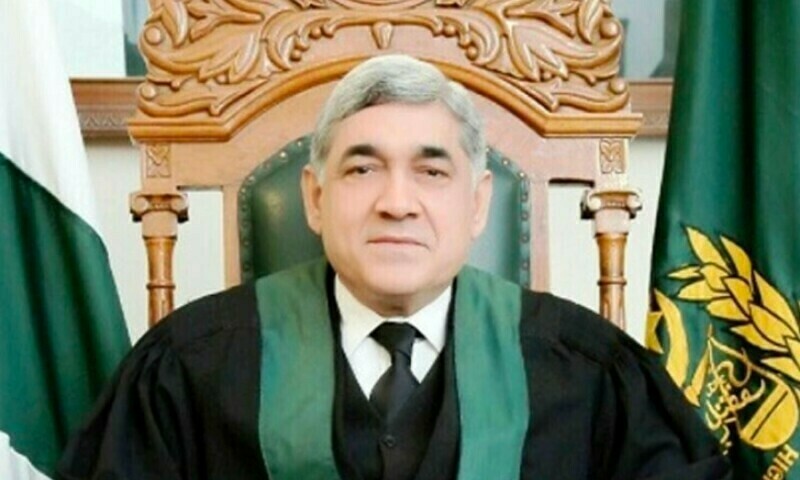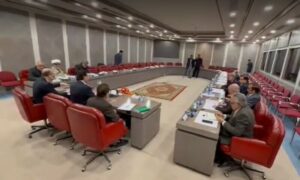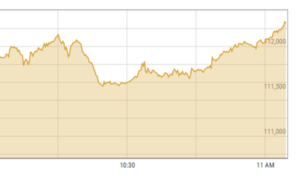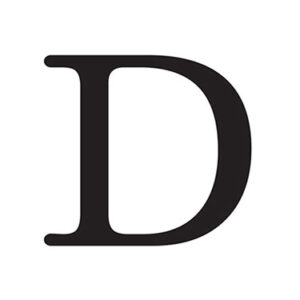The Sindh High Court (SHC) on Thursday directed the Pakistan Telecommunication Authority (PTA) to fully restore the services of social media platform X (formerly Twitter) across the country.
X remains disrupted in many areas of Pakistan for the sixth consecutive day. According to monitoring website Downdetector, the disruptions were reported in Rawalpindi, Karachi, Gujranwala and Lahore among other cities.
During a hearing today, SHC Chief Justice Aqeel Ahmed Abbasi instructed the PTA that the services of X should remain restored “without any interruption or disruption”.
The directive was issued on a petition filed by senior journalists through Advocate Abdul Moiz Jaferii. It contended that restricting or blocking access to X was “unlawful, arbitrary and violation of the letter and spirit of Article 19 and 19-A of the Constitution”.
The plea named the PTA, interior ministry and information ministry as respondents in the case.
X has been inaccessible since Saturday when former Rawalpindi commissioner Liaquat Chattha held a press conference and accused the chief election commissioner and chief justice of being involved in rigging the Feb 8 general elections.
Rights bodies and journalists’ organisations have condemned the muzzling of social media, while internet service providers have also lamented losses due to disruptions.
A day earlier, the United States called on Pakistan to lift social media restrictions. “We are concerned by any report of restrictions on freedom of association and expression in Pakistan, including the partial or complete government-imposed shutdowns on social media platforms,” US State Department spokesman Matthew Miller told reporters.
The hearing
During the hearing today, Advocate Jafferi recalled that the interior ministry said it had not issued any directives regarding the suspension of X.
He said that as per the IT ministry, the information technology sector was booming in Pakistan. “The prime minister, interior minister and IT minister are using VPN to tell the public that X has not been suspended,” the lawyer said.
Here, Justice Abbasi inquired, “Who suspends this? Who issued the orders to keep [the platform] shut?”
Jafferi responded that the authority to suspend or slow down the services of X only lies with the PTA. “The authority should be asked who issued orders to suspend the platform,” he demanded.
The lawyer further highlighted that journalists and others who used X for financial purposes were suffering due to the disruptions, adding that suspension also hindered the provision of advertisements to Palestine and information regarding the situation in Gaza.
“For how many days has X been suspended for?” the judge asked. He also recalled that the court had earlier issued directives for uninterrupted access to the internet and social media platforms.
However, Jafferi highlighted that his petition was different, adding that disruptions to the services of X began the day the former Rawalpindi commissioner’s statement pertaining to alleged rigging emerged.
Subsequently, the judge directed the PTA to fully restore X and sought detailed responses from the respondents at the next hearing.
The petition
The plea, a copy of which is available with Dawn.com, stated that the actions of the PTA “directly and actively infringe upon the petitioners’ fundamental rights to freedom of speech and press, their right to receive information, and their right to freedom of trade as enshrined in the Constitution”.
It highlighted that the suspension of X was a blatant violation of the laws and rules governing the PTA’s actions as a regulator of telecommunication systems and services in the country.
“Furthermore, the impugned actions have been deliberately undertaken in a surreptitious manner by the PTA without any official notice or notification of the same, completely disregarding and violating due process of law as mandated under the various laws and rules,” the petition said.
It added that these actions were “completely void of any cover of legality, and
appear to have been taken in order to achieve nefarious and ulterior motives at the expense of the fundamental rights of not only the petitioners but every single citizen of Pakistan”.
“The timing and national effect of the PTA’s decision to block and restrict
access to the internet, the complete lack of any ownership over the impugned actions by any of the respondents, the absence of any written notifications or reasons for taking these actions, and the continuing disruption of service with respect to the social media platforms in question make it evident that the PTA’s actions and motives do not align with any of the narrow exceptions under which the PTA is authorised to restrict or disrupt the flow or dissemination of any content,” it added.
The petition subsequently prayed that the court declare any act of wholly restricting internet access exceeds the power of regulation afforded to the PTA under the law and direct the respondents to immediately restore public access to X.
“Permanently restrain the respondents from arbitrarily, unlawfully, unreasonably, unnecessarily, and/or disproportionately restricting or blocking internet access to X/Twitter or any other social media platforms except within the strict confines of the applicable law and rules, and the Constitution of Pakistan, 1973,” it further demanded.







